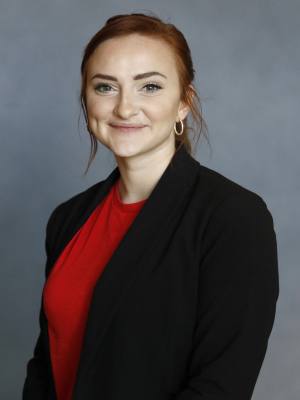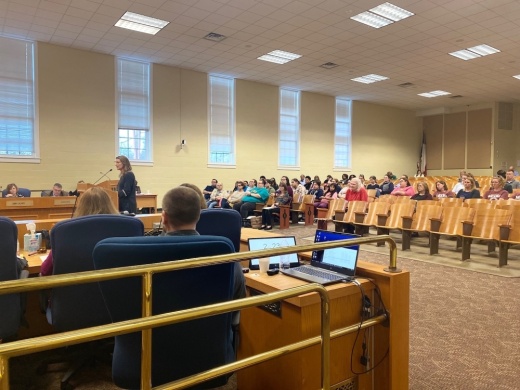Richardson ISD parents and faculty attended the March 9 board of trustees meeting to give feedback on the district’s new literacy program.
The program, called WeREAD Literacy Lab, was introduced to the board at its Feb. 24 work session, where trustees gave approval to staff to begin taking steps toward implementation.
WeREAD would initially be used at four elementary schools: Audelia Creek, Dover, Northrich and Skyview. These campuses were chosen based on location, size and student performance, according to Superintendent Jeannie Stone.
The lab would help accomplish one of the board’s goals, which is to increase the districtwide percentage of third graders who read at grade level from 47% to 60%. The goal is to see ths accomplished by June 2024, according to Stone.
“Without a strong foundation of reading, students lag in every class year after year because most curriculum is taught using the skill of reading,” Stone said at the Feb. 24 session.
Framework for similar programs also includes a year-round academic calendar and varying compensation for educators who are known to produce high achievement in students.
The RISD program would include evidence-based literacy intervention and assessment tools, trained teachers in balanced literacy, master reading coaches and individualized instruction for students, Stone said.
Despite its benefits, the program was a hot button issue among speakers at the March 9 board meeting.
“Our teachers are concerned about the effect on their day-to-day planning, their day-to-day time management and how they can effectively serve our children,” Northrich Elementary PTA President Brittany Holt said.
Richelle Stinnett, a 20-year Dover teacher and reading specialist, spoke about her concerns with hiring additional specialized literacy coaches.
“I love the idea of a literacy-based program ... but my confusion comes in the plan,” Stinnett said. “You will be spending money on literacy coaches in each school, but you already have those people in place.”
Stinnett also talked about the disadvantages of a year-round academic calendar.
“I believe our goal is the well-rounded child,” Stinnett said. “[That] means summer camps at churches, sports with their families at the local park, traveling to visit family and other countries.”
Dover Elementary Principal Jennifer Balch shared her support for the program, particularly in regards to adding literacy coaches and the extra professional development the program would provide teachers.
“[This] will give the balance our teachers need to make them have the skills they really deserve to have.” Balch said.
The board is prohibited from responding directly to speakers during public comment; however, in response to concerns raised at the board meeting, Stone announced March 10 to remove the possibility of a year-round calendar.
“I truly appreciate the feedback we’ve received so far from our WeREAD school communities,” Stone said in a statement to Community Impact Newspaper. “Based on input from the teachers and parents who would be directly impacted, I am indefinitely removing from consideration any changes to the school year calendar as we move forward with implementation of the program.”
According to the Feb. 24 briefing on the program, an additional $1.5 million would be needed to support the labs.
The district will finalize calendars and salary incentives and post job openings for the literacy program in March. Principals at the four campuses where the program is being implemented will be required to reapply for their positions. Between April and June, the district will hire new staff, finalize campus design changes and begin implementing the new program.
To learn more about WeREAD, visit RISD’s website.




